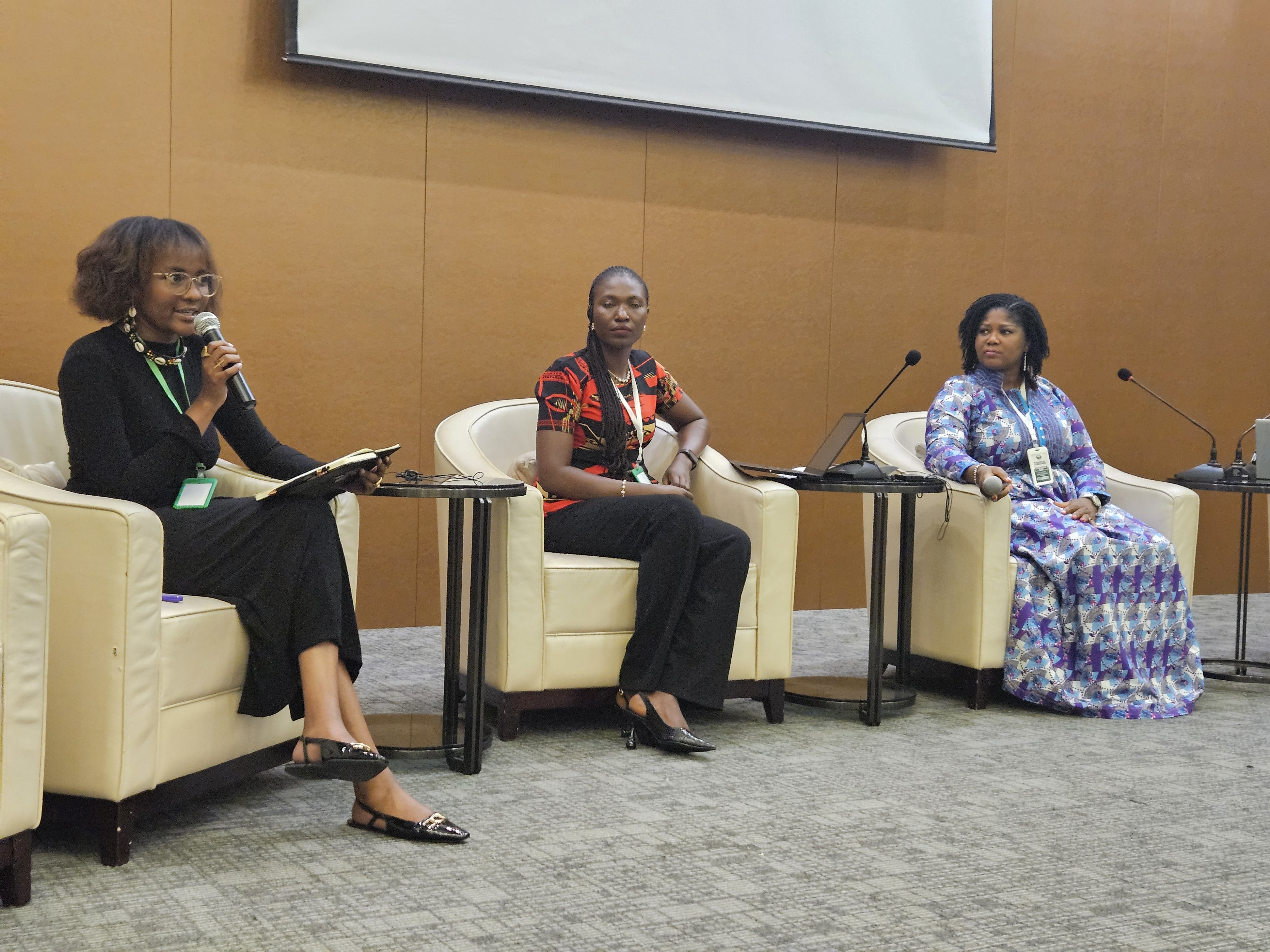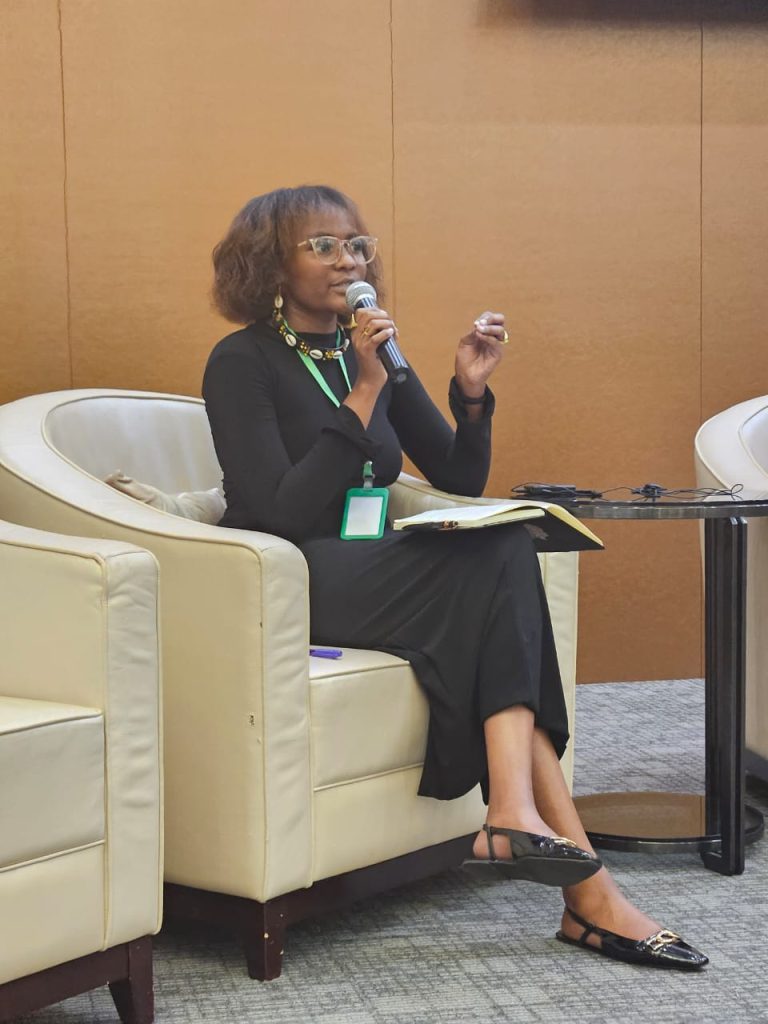
From Memory to Justice: Reframing Reparations Through African Youth Voices
By Mutheu Mutuku, EU-YSB Kenya
The concept of reparations is too often framed as a matter of historical redress, a symbolic gesture tied to long-past atrocities. But for many young Africans today, reparations are not a relic of the past; they are an active demand rooted in lived realities and the enduring legacies of colonialism, patriarchy, and extractive capitalism.
Last week, I had the opportunity to participate in the 14th GIMAC Youth Advocacy Training and the subsequent GIMAC RECs and Partners Meeting in Malabo, Equatorial Guinea, under the African Union’s 2025 theme: “Justice for Africans and People of African Descent through Reparations.” A space that offered political grounding for radical thinkers like myself.
Memorialization as a Political Act
I often feel drawn to Memorialization as a form of reparation. This is in recognition of the need for acknowledgement of atrocities and the danger of a single narrative that has been told for decades. Memorialization is a deliberate political intervention. It involves naming and holding space for histories that have been erased, distorted, or deemed inconvenient by colonial and postcolonial systems alike. In African contexts, where violence, dispossession, and cultural rupture were normalised and codified through colonial law, memorialization becomes a strategy of resistance and repair. It asserts that trauma must be acknowledged not only through apology or compensation, but through the reconstruction of collective memory, which includes oral traditions, cultural rituals, indigenous knowledge systems, and public truth-telling.
Feminist thinkers have long insisted that the personal is political; similarly, memorialization asserts that memory is also political. It restores dignity to the silenced and centers healing as a necessary site of justice. Without memorialization, reparations risk becoming empty gestures, transactions without transformation, redress without recognition, and justice without truth.

Mutheu during her presentation at the GIMAC/RECs meeting in Malabo, Equatorial Guinea
Reframing Reparations Beyond Compensation
What became clear in our sessions was that young Africans are reimagining reparations through a structural and intersectional lens..
At the heart of our advocacy was a call for:
- Economic repair – through the cancellation of illegitimate debt, regulation of illicit financial flows, and fair implementation of the African Continental Free Trade Area (AfCFTA).
- Climate reparations – that go beyond mitigation to address loss and damage, provide clean technology transfers, and recognize the disproportionate burdens placed on African nations.
- Cultural restitution – including the repatriation of stolen African artifacts and intellectual property, and the funding of community-based cultural institutions.
- Gendered justice – by recognizing that women, especially those from marginalized identities, bear the heaviest brunt of both colonial histories and current neoliberal policies. Reparations must therefore be feminist in design and implementation.
- Epistemic justice – where African knowledge systems are restored, validated, and made central to policymaking and education.
From Participation to Co-Creation
Following the training, I joined the GIMAC RECs and Partners Meeting, which convened stakeholders from the African Union Commission, regional economic communities (RECs), and civil society. What struck me was not simply the representation of youth, but the quality of engagement and the expectation of co-creation.
We are no longer content with being “included.” We are asserting our role as co-authors of reparative frameworks. Our generation is not asking to be saved, we are building the structures that reflect our politics, values, and lived truths.
This moment in Malabo reaffirmed that reparations cannot be delivered through bureaucratic processes alone. They must be animated by radical imagination, institutional courage, and intergenerational dialogue rooted in justice.
Conclusion: A Continental Commitment to Repair
The African Union’s adoption of reparations as the 2025 theme is not only timely but also deeply consequential. It signals a shift from rhetorical acknowledgment to institutional commitment, evidenced by the recent establishment of the Committee of Experts on Reparations, a Continental Reparatory Programme, and proposals for a Global Reparations Fund.
But these mechanisms will only succeed if they are rooted in the voices and demands of those who carry the weight of inherited harm and continue to endure its manifestations.
Mutheu Mutuku is a law graduate and the Founder of Equality Vanguard Africa, She is also a member of the Youth Sounding Board under the Kenya–European Union partnership and supports the Global Landscapes Forum as the youth in landscapes Intern for Africa.
